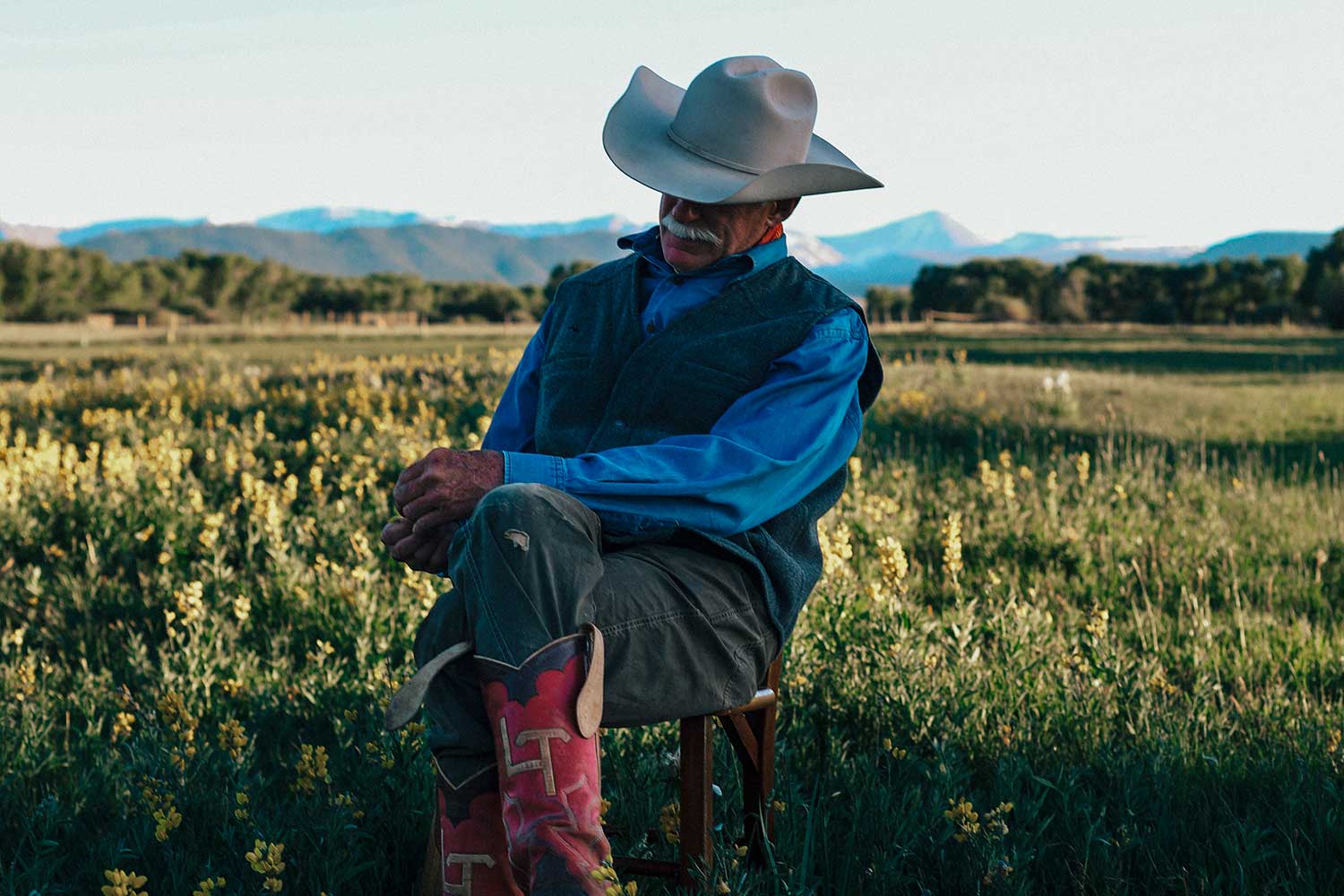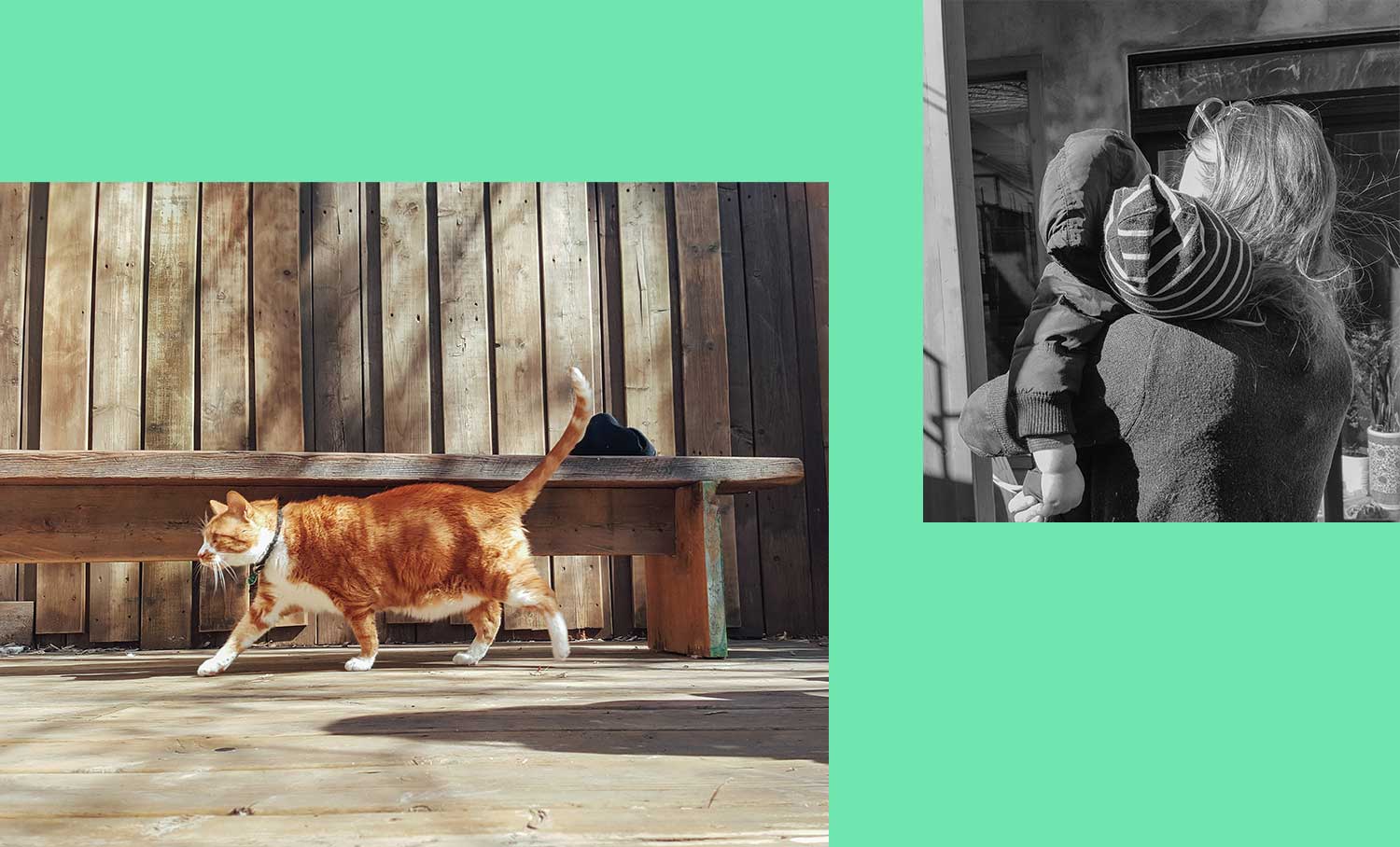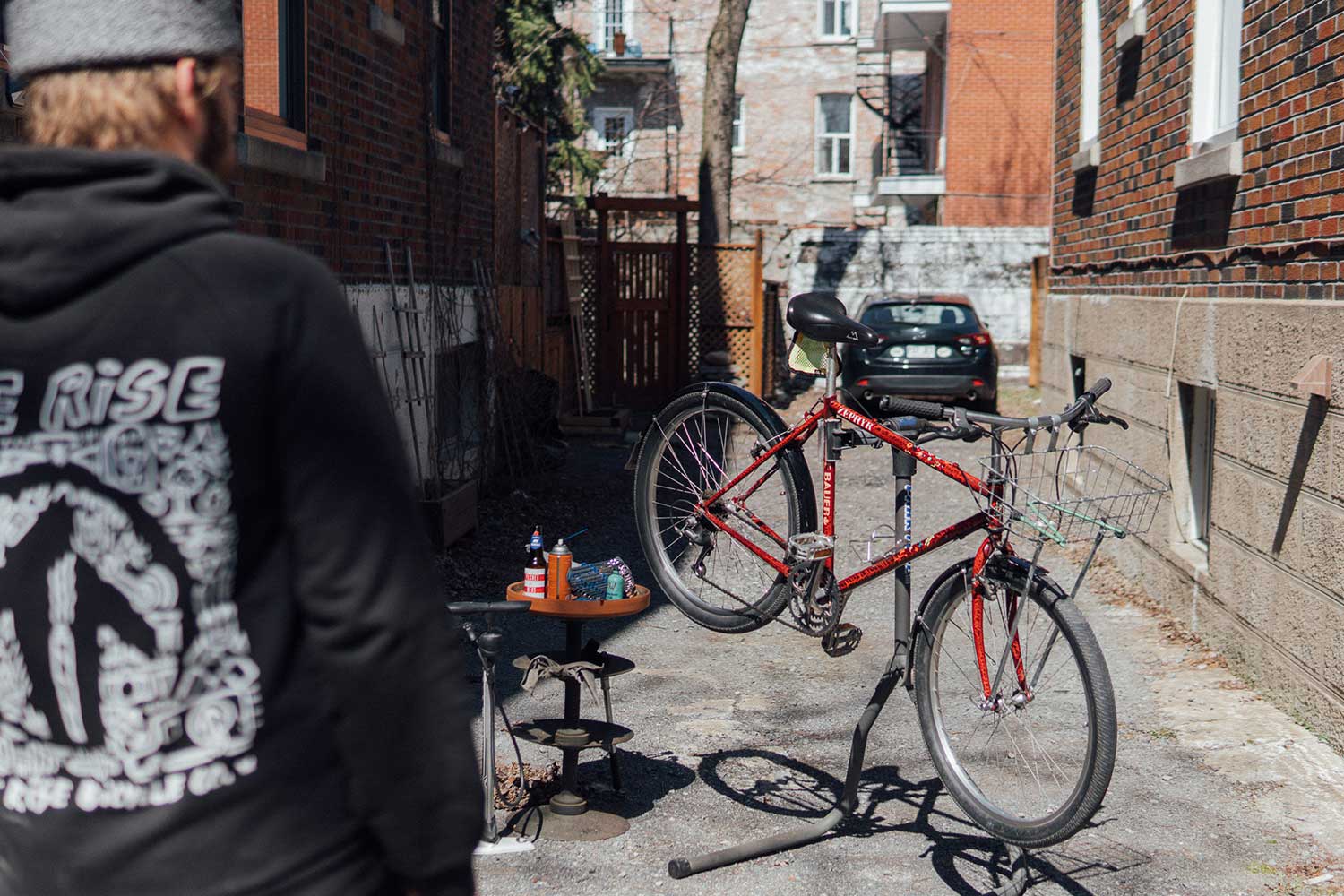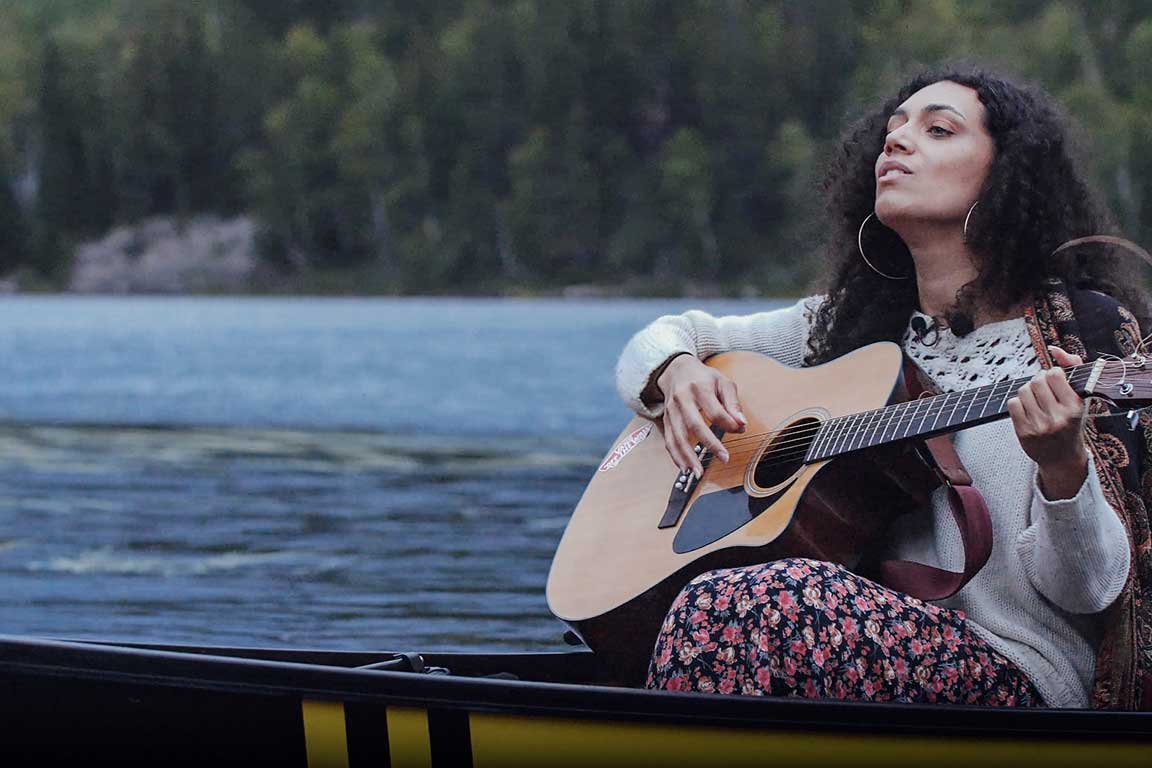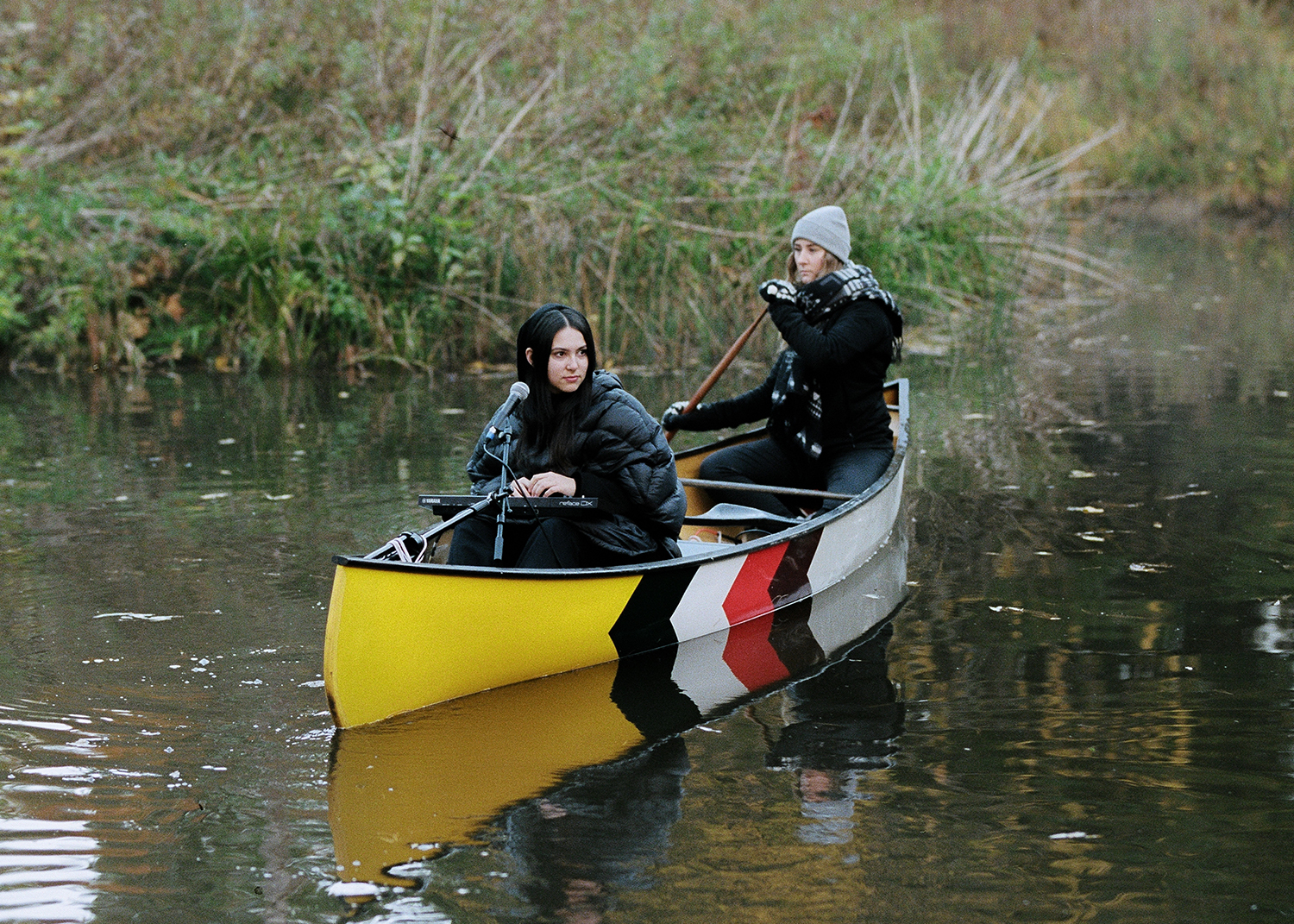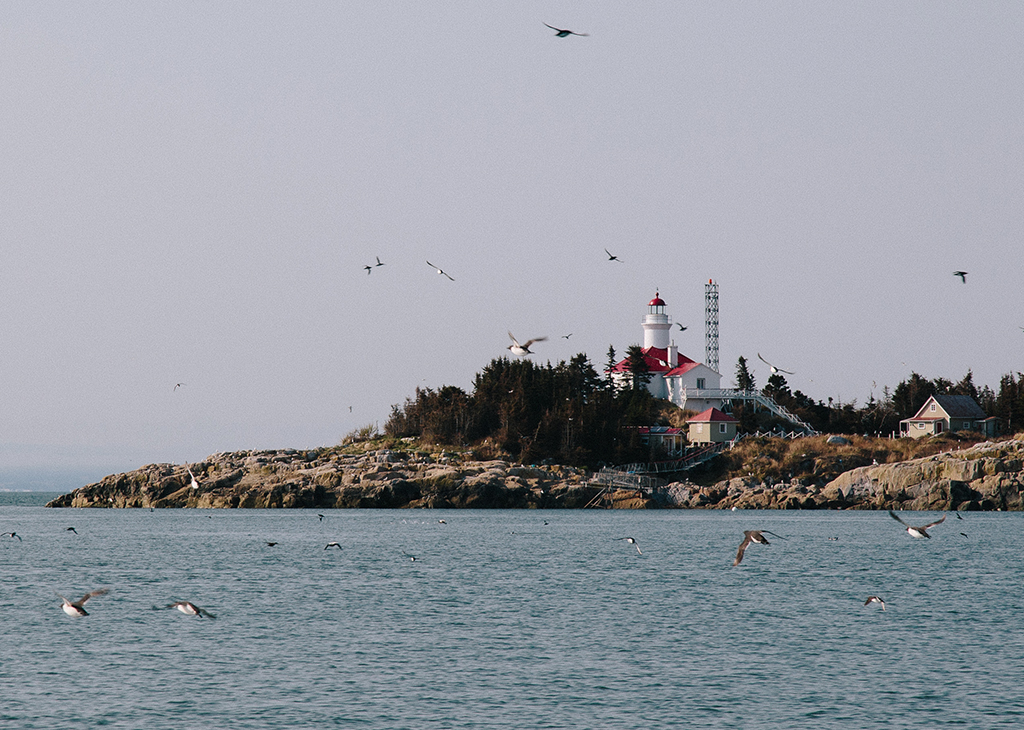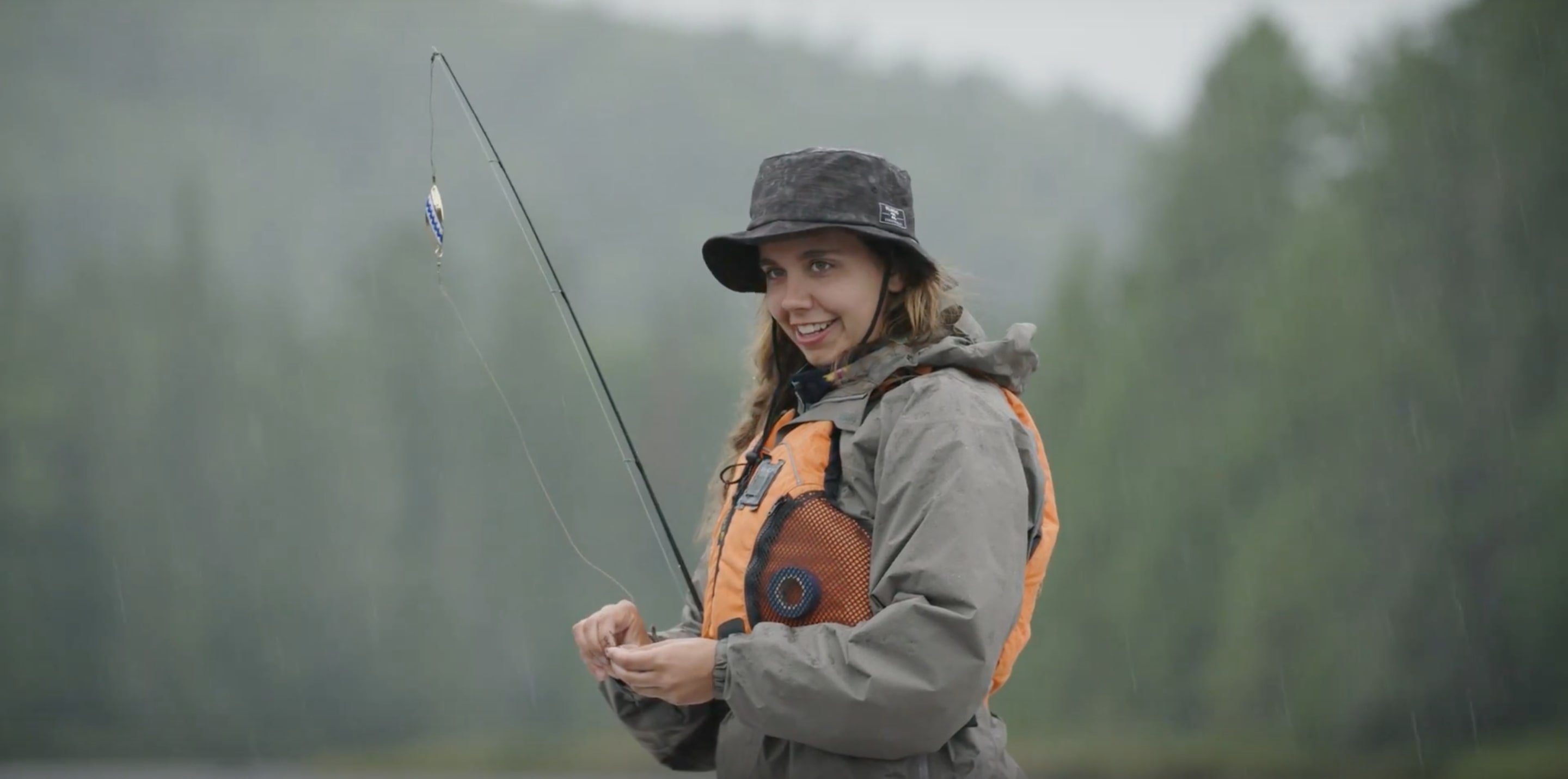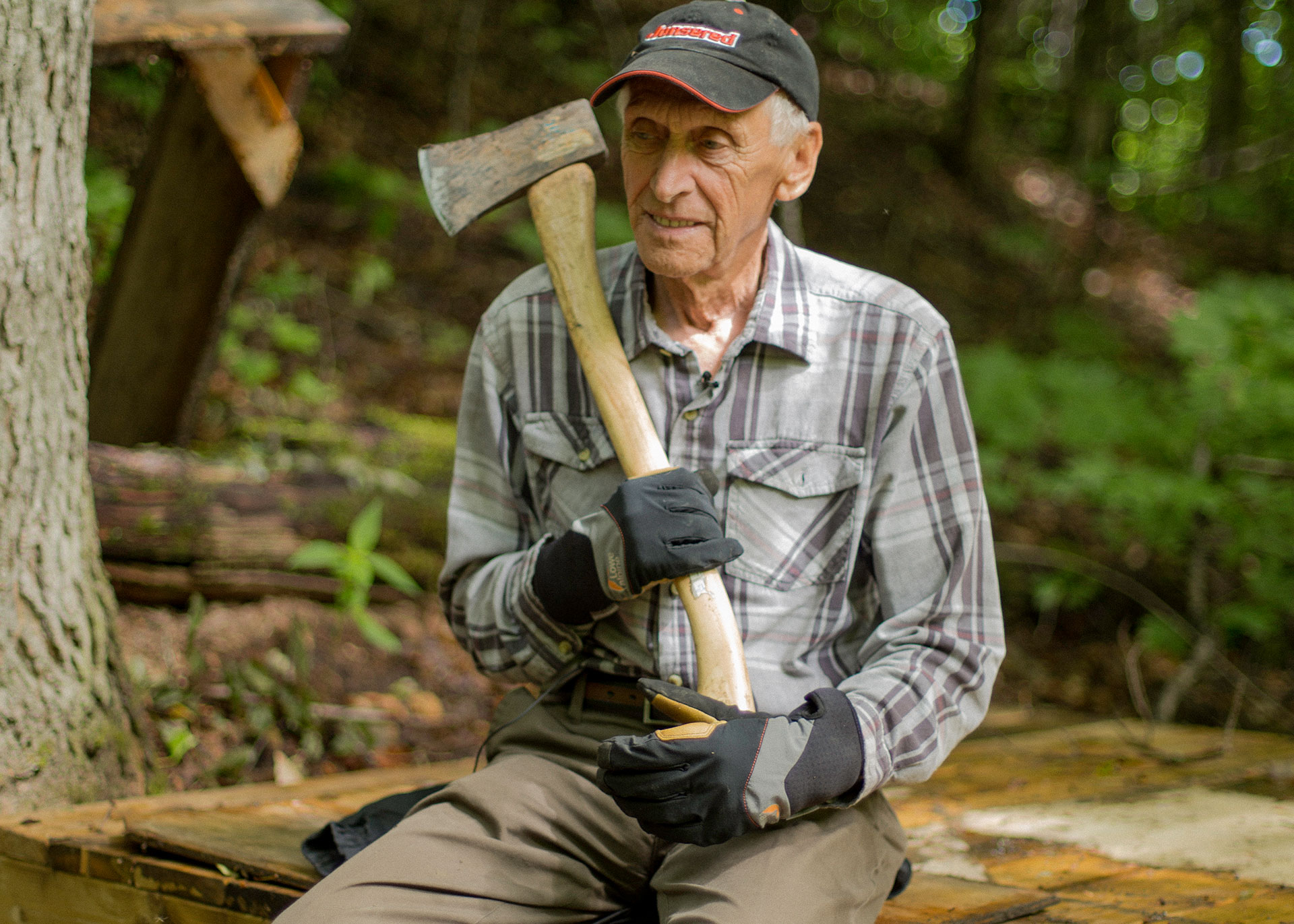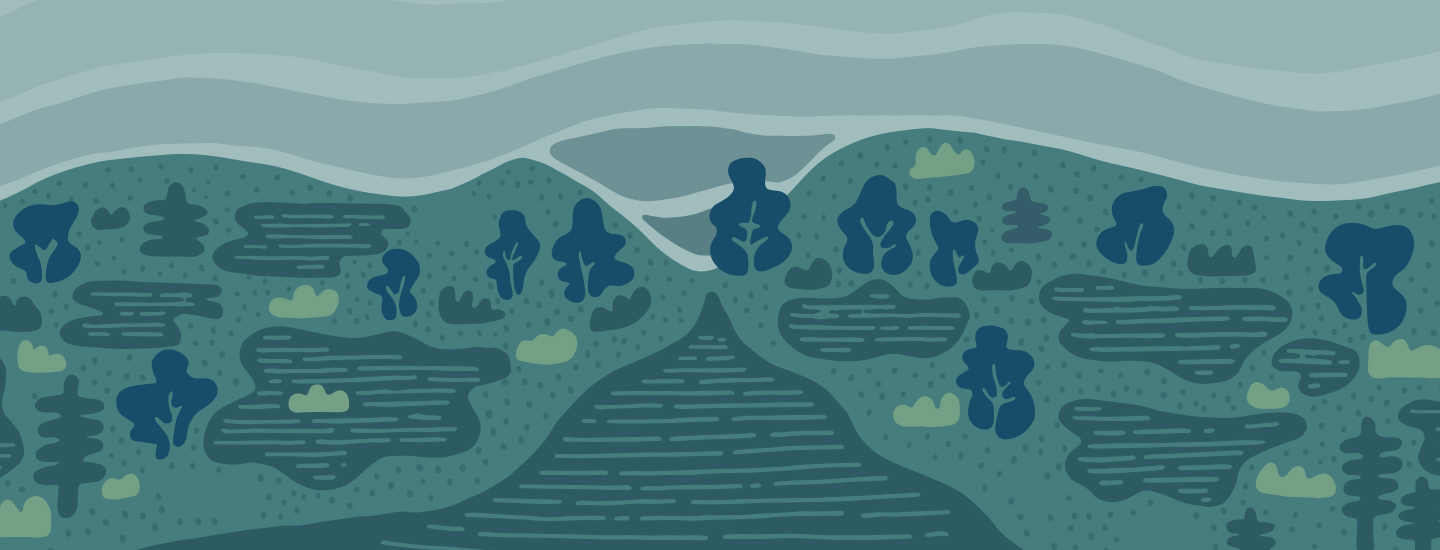New Narratives
Divided We Sail
When Eric Muszynski agreed to sail across the ocean with two other adventurers, he never anticipated that his biggest challenge would come from inside the boat.
I am 25 when I get invited to sail across the Atlantic Ocean. I have done a little coastal sailing in the past, but never anything as grand as this. We are to leave Nova Scotia on a 32-foot boat, three of us aboard, and sail east for however many days it will take us to reach Ireland. I say yes right away, but the captain — an old friend — insists I take a few days to mull it over.
I learn that there are three main dangers to an ocean crossing like this: getting run over by a cargo ship, running into a cargo container adrift just below the surface, and hitting an iceberg near the Grand Banks of Newfoundland. Then there’s the possibility of getting caught in a big storm or hurricane, and, less dramatically, the risk of malfunction. The mast could snap in two; the satellite phone’s electronics could get wet; we could be stranded, hundreds of miles from shore. But since I’ve never done anything like this before, all of these risks seem abstract. I go back to the captain and tell him I’m in.
That night in bed, I toss and turn all night, imagining myself on a small boat in the middle of the ocean, no one and nothing to be seen all the way out to the flat horizon. I picture myself lost in the immensity of it all, alone in those unimaginably dark depths, treading water to save my life. I am terrified.
When I confide this to a friend, she replies, “If you weren’t scared, why would you do it?”
The middle of the ocean is not a normal situation
A week before departure, we all meet in Nova Scotia in order to prepare for the voyage. We accumulate anxieties and frustrations as we come to grips with the dangers that lie ahead, but there’s little time to process these feelings as we focus on the tasks at hand. Under the captain’s guidance, we work hard every day to repair, replace, or acquire the myriad electronics, tools, fixtures, and items of safety gear for our journey.
The captain and the other mate aboard are both middle-aged men, each accomplished adventurers. The captain has sailed across the ocean before and skied across Baffin Island; the mate was the first person from Québec (along with his climbing partner at the time) to summit a peak over 26,000 feet, Gasherbrum 1 (a.k.a. Hidden Peak) in the Himalayas, during a period when more than 10 per cent of expeditions attempting the ascent saw at least one member die.
We each start feeling safe on the ship at different moments. For the captain, it’s when all the safety-related materials are on board: the floating anchor, the drogue, the lifeboat. For the mate, it’s when all the chow is on board: the fruit, the eggs, the big piece of prosciutto, the whole chicken frozen in the freezer, and the beer and wine. For me, it’s when the small bookshelf is filled with books, though it’s not lost on me that Beckett would do little to save me in a storm.
When we finally get out on the water, time takes on a new shape. Nothing happens for hours and even days, but we need to be on constant alert. We’re always planning for the worst, and sometimes the worst is upon us: gale-force winds and waves so huge the troughs look like small valleys. At night, some of the black waves are big enough that it looks like the curling whitecap could sweep over the cockpit. There are times when I need to talk sternly to myself, to quell the panic that rises up within me. I repeatedly remind myself that fear will not help me.
If all else fails, I reach for distraction: cooking, eating, journaling—anything to convince my brain that the situation is normal, even though it isn’t.
The crests never do sweep over the ship; each time, as the waves catch up to us from behind, the boat rises with the wave and surfs down the front, until the crest passes us and the boat tilts upwards, crawling its way up the backside, soon to be pushed by the next swell.
The sun does not shine
After a week of sailing, we are inching our way along the Grand Banks of Newfoundland, where icebergs tend to drift. There’s not much wind, and the cold water means that we are enveloped in fog for days on end. It feels like we aren’t going anywhere.
Waking early one morning, I crawl out of my berth and poke my head into the cockpit, squinting at the foggy white sky. The captain and the mate are talking. The mate wants out. He is sitting low on a bench in the cockpit—grey, grisly, unshaven, unwell. A dried drop of sea salt sits on his cheek. He has been seasick for seven days and can’t shake the feeling that he is in a hostile environment. He feels clumsy, slow, and cannot bear to be a burden on us both. He asks to get off in Newfoundland, a little way to the north of us.
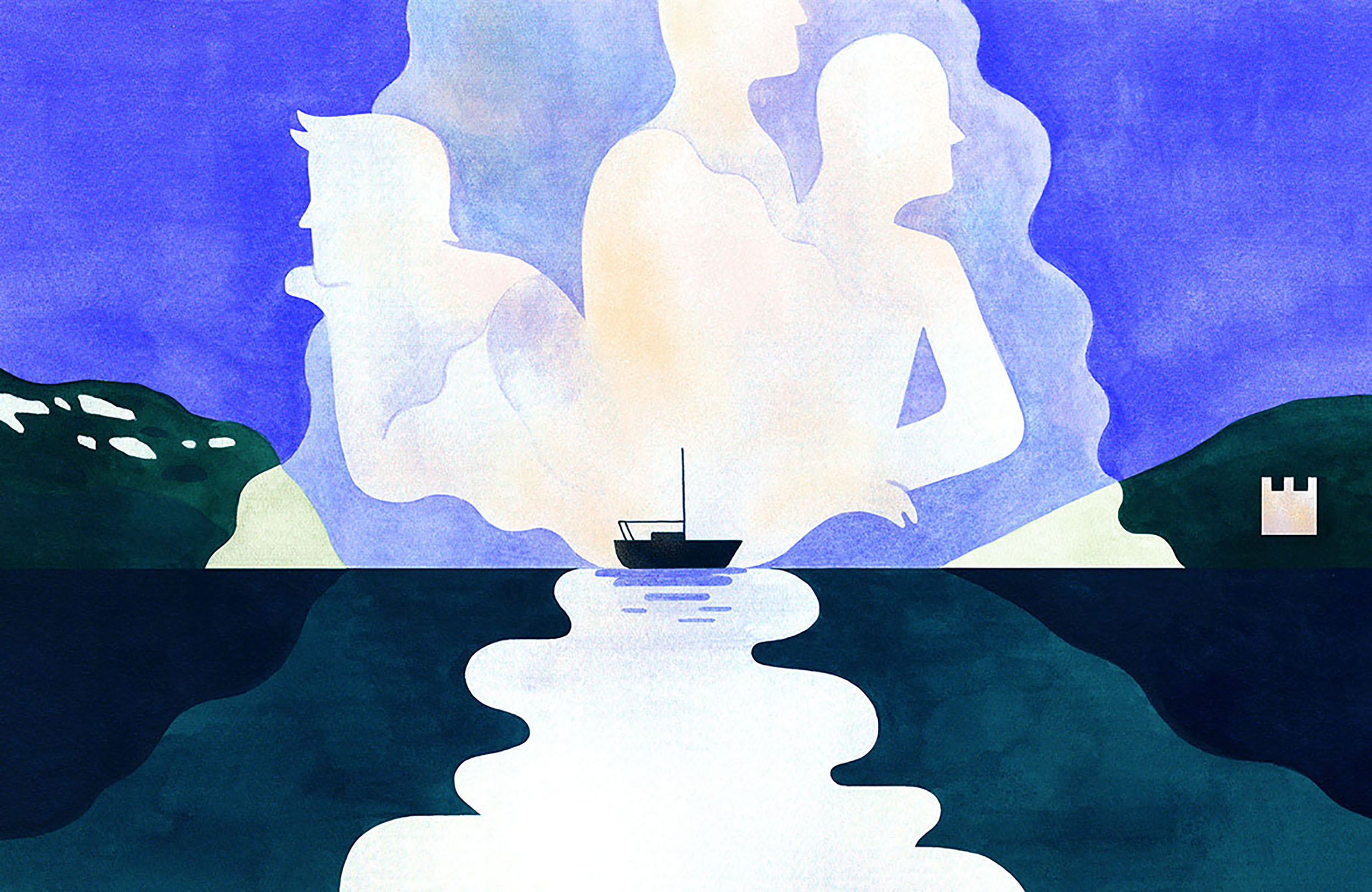
The captain stands at the back of the cockpit, arms spread out, a hand on each backstay. Between his legs is the tiller; the white wind vane flutters above his head. Looking up at him, I get the impression that he is as much a part of the boat as the hull or the sail. He tells us that this endeavour is a deciding moment in his life. It’s his first opportunity to own and sail a boat across the ocean. When he was in his early twenties, he scraped together enough money to buy a small yacht, only to see the crane he had hired to put it in the water inadvertently destroy it before he could get aboard. Now, three decades later, he finally has his sailboat, and he is finally crossing the Atlantic. With moist eyes, he tells us that if he does not cross this time, he feels he may never have the chance again. He wants to make it to Ireland.
They both turn to me: “What do you want to do?”
At first, I do my best to weasel out. I say I am simply grateful to be there. It hasn’t always been easy, but I feel all right. I would be happy no matter what gets decided.
They won’t have it. “No, really,” they insist. “What do you want?”
From the outset, I had decided to accept the very real risks in crossing an ocean in a comparatively small sailboat: storms, cargo ships, equipment breakdown. It had all terrified me, but I had chosen to go anyway. Now, with enough days on the water to really understand just how gruelling it can be, to really grasp how precarious our situation is and how isolated we are—now I am suddenly told that it can simply end. We can stop, though the captain will lose his dream. Or we can go on, but at the expense of the mate, who is suffering. Whichever path we take, it feels like it’s entirely up to me.
“I want to keep going,” I say.
The fog remains all around us. The sun does not shine. There is only a pervasive white glow, seemingly keeping us suspended in time and in space.
Later that day, the captain studies the charts and tells us that it might in fact be more dangerous to head into the iceberg-filled waters north of us than it is to simply keep going east. Though this makes sense to me, I can’t help but think that it comes a little too late, since it seems the decision has already been made.
“This is not a good situation,” I write in my journal that evening.
We do not talk about it
We take three-hour shifts at the helm, with six hours in between to eat, clean, sleep, and do whatever needs to be done on the boat. I learn to fall asleep at any time during the day or night, and to be ready to get up when needed. The constant repetition of short sleep intervals and typically uneventful shifts makes it difficult to keep track of days. Time slows down, and little events become sources of entertainment or distraction for hours.
One night, the bioluminescence surrounds us. When certain phytoplankton in the sea get stirred, they emit a blue-green light. I clip my lanyard to a cable that runs along the deck and walk out to the front. As the prow of the boat crashes through the waves, the crests light up. I look out at the black ocean and spot a dolphin swimming by the side of the ship, leaving a trail of light behind it, an underwater comet. At sunrise I wake the captain and head to bed for a few hours’ rest.
Throughout the trip, the mate does everything required of him and more. Every shift, every meal, every task, unhesitating. Of course, there is a tension, one which nobody discusses: the mate has clearly told us that he does not want to be here, and yet here he is, braving the dangers. And although all three of us are working hard and doing our part, I think that our motivations differ: two of us want to cross, the other simply wants it to be over.
Not on the same boat
We make it to Kilrush, Ireland, in 19 days, with the weather getting worse and worse as we approach. What a relief it is to finally be on land! Stepping into the marina building, the silence and stillness are surreal; we are accustomed to wind constantly blowing in our ears, the rain and spray hitting our faces, the boat straining under the wind and swaying under our feet. Now we are indoors, and nothing is moving.
With no more clear objective ahead of us, we finally have time to think about everything that has happened to us during the crossing. Foremost in everyone’s mind is the moment of decision, when the mate was forbidden to get off in Newfoundland. What was left unsaid now comes out, creating difficult conversations. We realize that while the mate thought that the two of us would continue on without him, the captain and I understood the mate to be asking us to put an end to the trip.
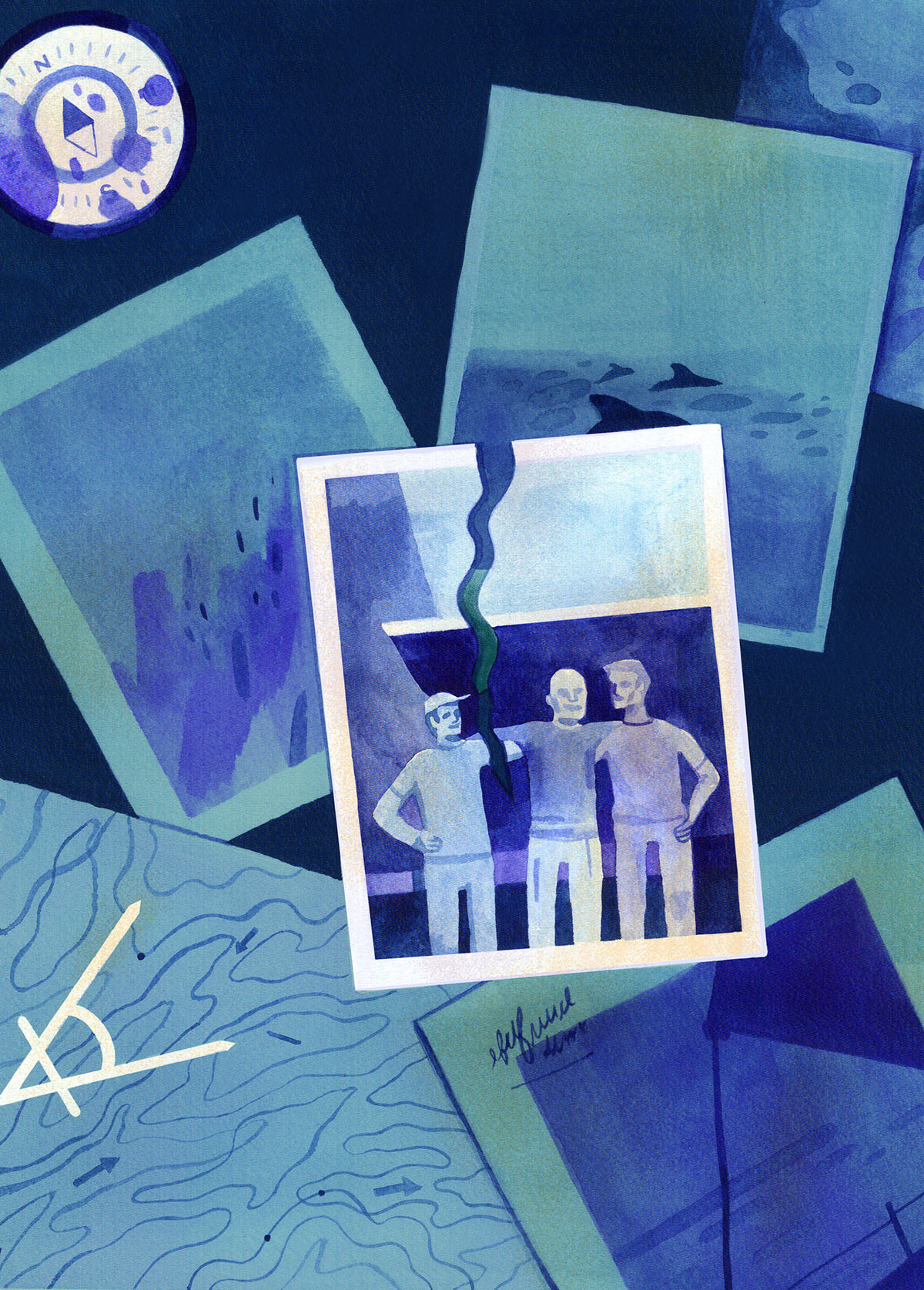
To the mate, it makes no sense that he was unable to jump ship. To the captain, it makes no sense that one person could leave without putting the entire project in jeopardy. As for me, I am caught between these two men twice my age and their two irreconcilable positions. I try and fail to resolve their differences. The only thing we can agree on is that we should have talked about it sooner. We never do reach a consensus.
A decade later, there remains no animosity, but there are still diverging opinions, bottled frustrations, and things left unsaid.
To this day, I do not know what the correct decision should have been. Sometimes no perfect solution exists. But I do know that this crossing has been a milestone adventure for all three of us, and that it taught us more than we could have anticipated about our limits, our confidence, and our humility. All three of us would be ready to sail across the ocean once more — only, not all on the same boat.
